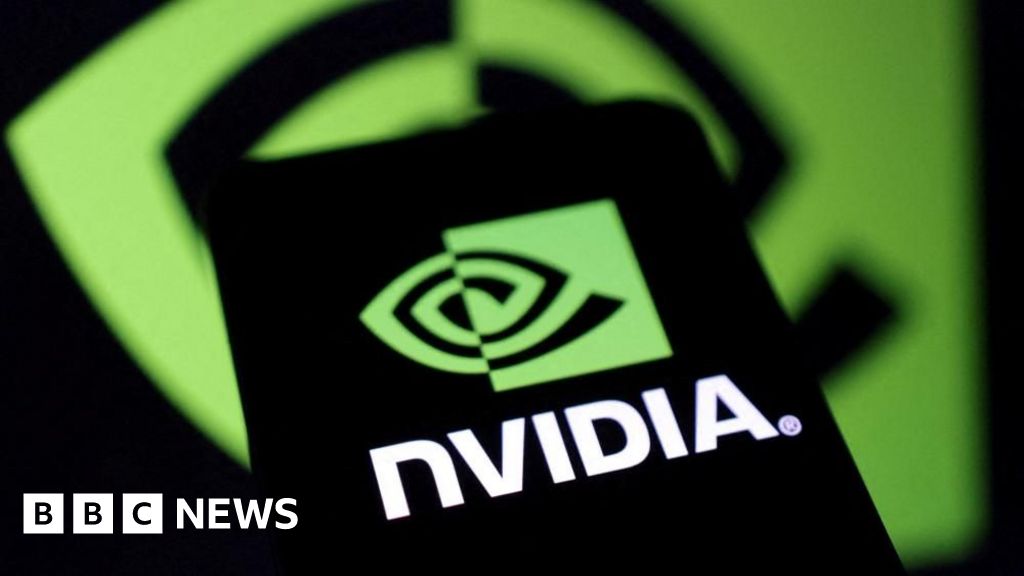Market Awaits Nvidia's Upcoming Earnings and Blackwell Details
Nvidia's upcoming first-quarter earnings report is a highly anticipated event in the financial markets, with investors and analysts keenly focused on several key areas, particularly updates concerning its new Blackwell GPU lineup. The report's significance extends beyond Nvidia, as the company's dominance in the artificial intelligence (AI) chip market often sets the tone for the broader technology sector and provides insights into the future of AI development.
The Blackwell architecture is considered pivotal for Nvidia's continued growth and leadership in the AI space. Industry experts, including Dave Mazza of Roundhill Investments, note that the Blackwell lineup is reportedly sold out through the end of the year. While there were previous concerns regarding supply chain capabilities to meet the surging demand, current expectations lean towards a moderation in supply-demand dynamics, with an anticipated increase in supply becoming available. Nvidia has also historically used its earnings calls to tease future product developments and outline its strategic vision, a trend likely to continue.
Financially, a critical metric under scrutiny will be Nvidia's gross margin. The company has a track record of surpassing analysts' earnings estimates, and investors will be watching to see if it can maintain its gross margin in the low 70% range. This is particularly important given the substantial costs associated with launching new product architectures like Blackwell. Continued high profitability would be a strong positive signal. Furthermore, commentary on customer demand will be crucial. Major clients such as Meta Platforms and Alphabet have indicated they are maintaining their capital spending plans for AI infrastructure; confirmation that these investments will translate into sustained orders for Nvidia products is key.
Despite its strong market position, Nvidia operates in a competitive environment. Other chip manufacturers are vying for a share of the lucrative AI market, and notably, some of Nvidia's major customers are also investing in developing their own custom AI chips. This dynamic presents an ongoing challenge that Nvidia must navigate to maintain its market share and pricing power.
The Chinese market presents a complex challenge due to U.S. government restrictions on advanced chip exports. These restrictions have impacted Nvidia, which recorded a significant charge related to its H20 chip, specifically designed for the Chinese market but subsequently requiring an export license. China accounted for approximately 13% of Nvidia's sales in the last fiscal year, underscoring the importance of this market. However, reports suggest Nvidia is actively exploring strategies to retain its presence in China, including the development and potential mass production of new, compliant chips. There is a belief among some analysts that Nvidia will find avenues to offset any lost revenue from China, possibly by strengthening its business with hyperscalers and expanding in other international markets, such as Taiwan and the UAE.
Nvidia is also adapting to the evolving global trade landscape, including potential U.S. import tariffs that could affect electronics. The company has traditionally relied heavily on manufacturing in Taiwan but has recently announced significant investments to bolster its U.S. manufacturing capabilities. This strategic shift aims to diversify its supply chain and bring more production onshore. Two new U.S. facilities are reportedly expected to ramp up operations within the next 12 to 15 months. Investors will be looking for more details on these initiatives, including their potential impact on Nvidia's cost structure and operational timeline.
As a bellwether for the technology industry, Nvidia's earnings report and outlook can significantly influence market sentiment for other tech stocks. While this report provides a snapshot of the company's current performance and near-term prospects, it's also viewed within the context of the long-term growth trajectory of the AI market. Despite recent stock price volatility, the overarching sentiment for leading AI companies like Nvidia remains optimistic among many long-term investors.









